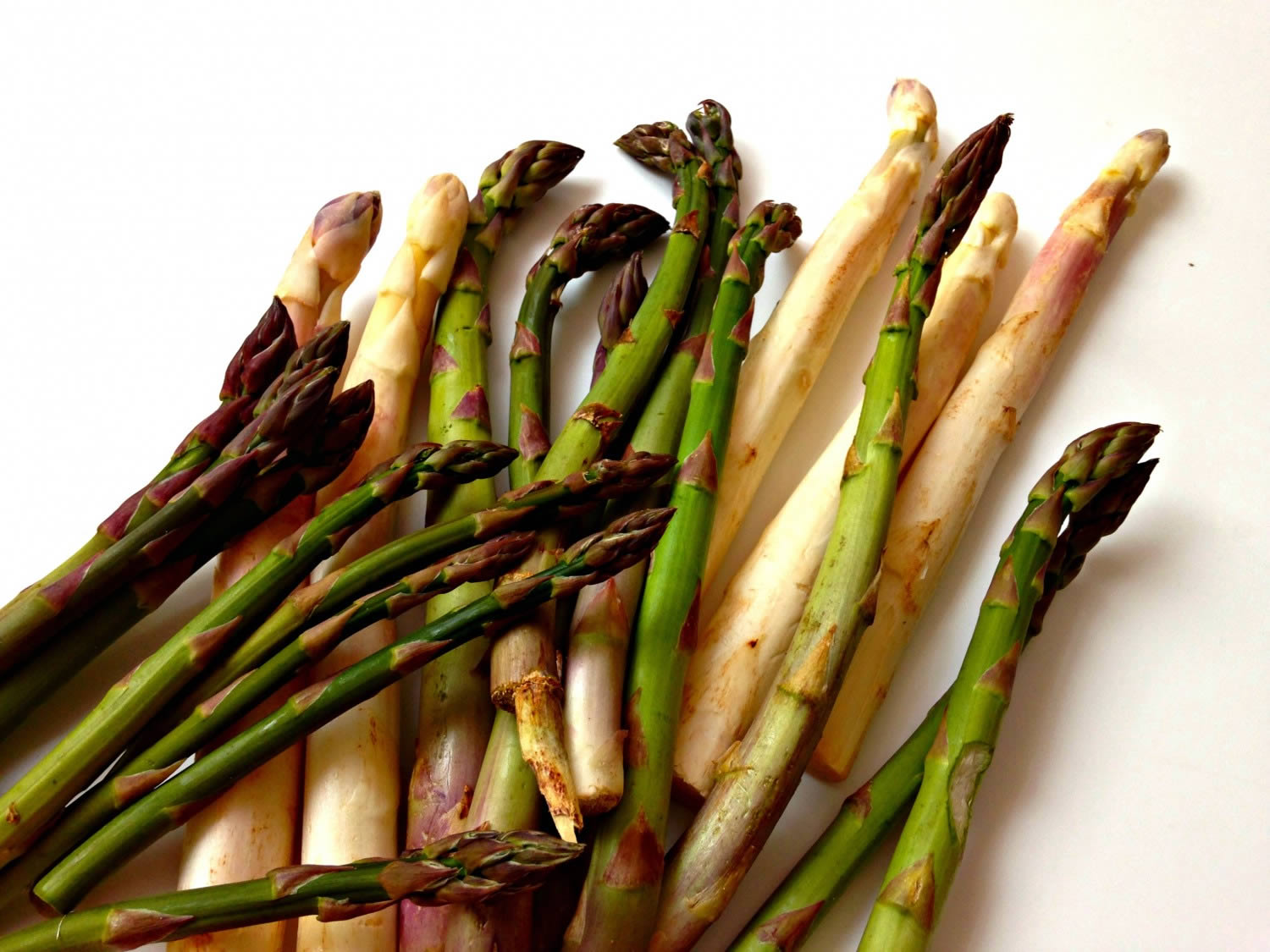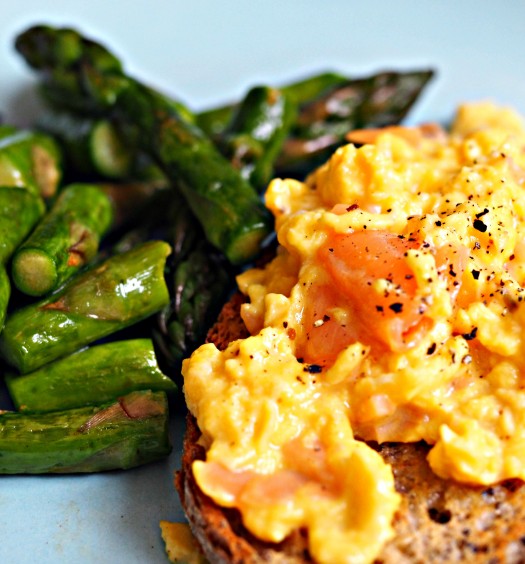The first few tips of asparagus in my garden popped through the earth a couple of weeks ago. I’ve had to move the bed once as golden autumn raspberry canes invaded the initial bed; the sight of my new asparagus bed ‘working’ fills me with juvenile excitement.
The British asparagus season lasts just a short time, from St George’s Day until Midsummers Day. Over the weekend I managed to unintentionally eat asparagus for three days in a row, a sure sign that the season has truly begun: beautiful Herefordshire white asparagus spears, wafer thin shavings of raw asparagus in a salad, and lightly steamed tender green spears with fish. It’s a versatile, nutritious vegetable, and there’s no better time to enjoy British asparagus than now, especially as there are so many health benefits of asparagus!
Asparagus is the epitome of seasonal eating. The crop emerges from the soil in mid-spring, poking its tip out as if to take a quick look around before deciding to risk the weather. By mid-summer the asparagus bed will instead be full of beautiful green-yellow ferns, no longer fit for harvesting. Asparagus is a crop demanding of respect – take just a single shoot from a newly planted crown in the first year, and like a tantruming toddler or petulant teenager, it will refuse to produce spears thereafter. It needs to be coerced into production – in the second year taking only a spear or two. From the third year onwards, more can be cut – but only for six to eight weeks until midsummer dictates the season is over.
Asparagus is a crop where, unlike some vegetables, farm to fork time does matter – research shows that nutrients deteriorate rapidly from the moment asparagus is picked. For that reason, and for the reduced food miles that British asparagus possesses (in comparison to the ubiquitous Peruvian spears available most of the year) I prefer to restrict my asparagus intake each year to the British asparagus season.
One of asparagus’s health benefits is that it is a diuretic – it makes us wee more, and can be helpful in reducing fluid retention and bloating. The downside is that it also makes urine smell, often after just fifteen minutes. The effect is more pronounced with young asparagus (the tips rather than the thicker spears). Interestingly, not all of us have the enzyme to a) produce the smell or b) smell it. So there are varying different asparagus wee combinations: those of us who produce it and smell it; those of us who produce it but can’t smell it; those of us who don’t produce it but can smell it in others; and those of us who neither produce nor smell it.
Apart from diuretic effects, there are plenty of other reasons to load up on asparagus in the coming weeks:
- Like Jerusalem artichokes, chicory and asparagus contain inulin which supports digestive health, acting a prebiotic (food for our ‘good’ gut bacteria)
- Asparagus is often found in detox programmes as it is a source of the antioxidant glutathione (and vitamin C) and supports the liver. Some research suggests that asparagus specifically stimulates the enzymes that break down alcohol – so asparagus before or after a night out is a great move. As asparagus also reduces production of the inflammatory COX enzyme (one of the enzymes Nurofen blocks) it might also stop you reaching for the painkillers.
- Asparagus is a good source of fibre and chromium, and improves insulin secretion, so is great for blood sugar support
- The saporins, antioxidants and other phytonutrients (including lutein, zeaxanthin, carotenes and quercitin) asparagus contains mean it is an important food to include in a broad spectrum cancer-preventative diet
The amazing taste of seasonal asparagus and its obvious health benefits make this an essential food in our house, for adults and children, from April to mid-June. I use different types – white spears, purple spears (which contain more healthy anthocyanins due to their purple colour), small delicate tips and the thick green spears that are readily found in supermarkets and farmers markets at the moment.
To make sure I retain rather than leach out nutrients (especially water soluble vitamin C and B vitamins), it’s important not to boil asparagus. Steam it, stir-fry it or my preferred method, which leaves it with more crunch is roasted, grilled or griddled (or even barbequed), drizzled with olive oil with a little seaweed salt on top. It’s so quick to cook, goes well with eggs for breakfast, as a crunchy stir-fry addition, made into a soup, or as a quick and simple side to our evening meal. Early summer wouldn’t be the same without asparagus!




